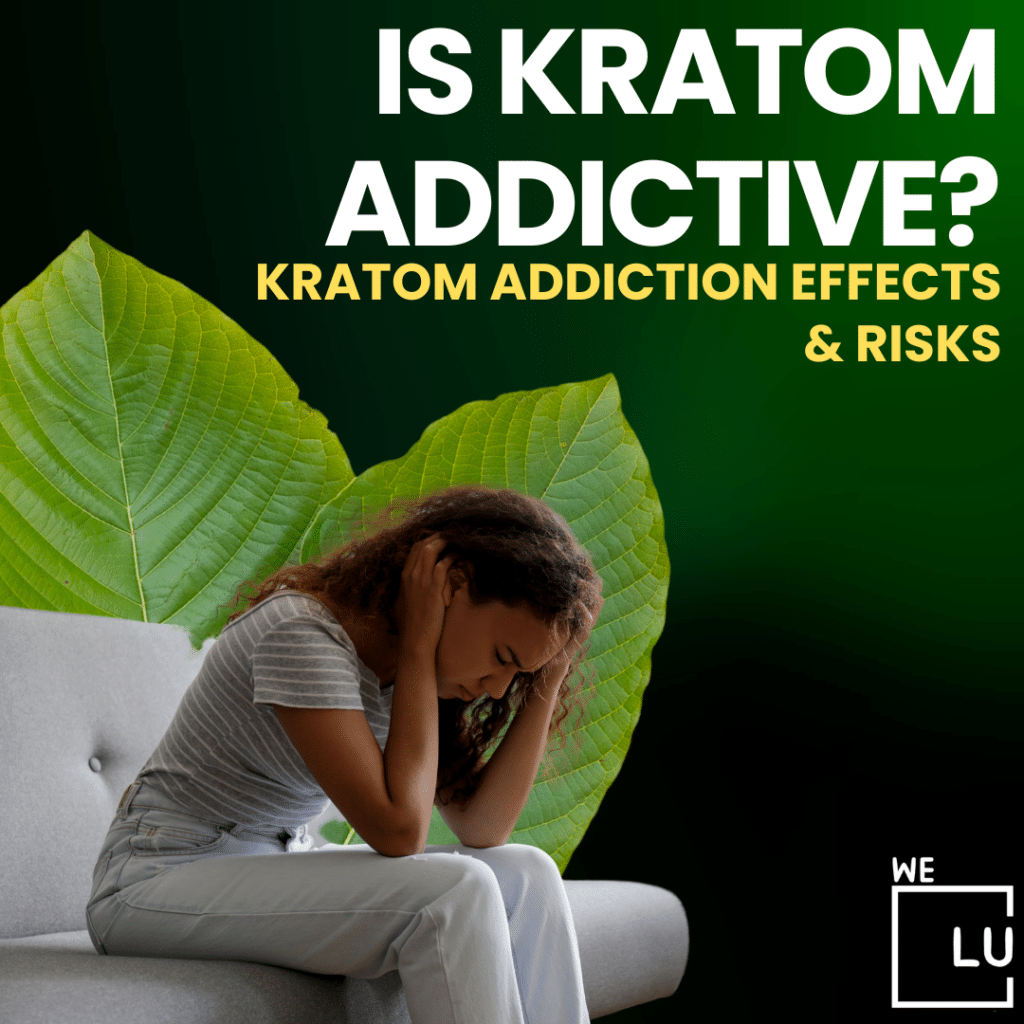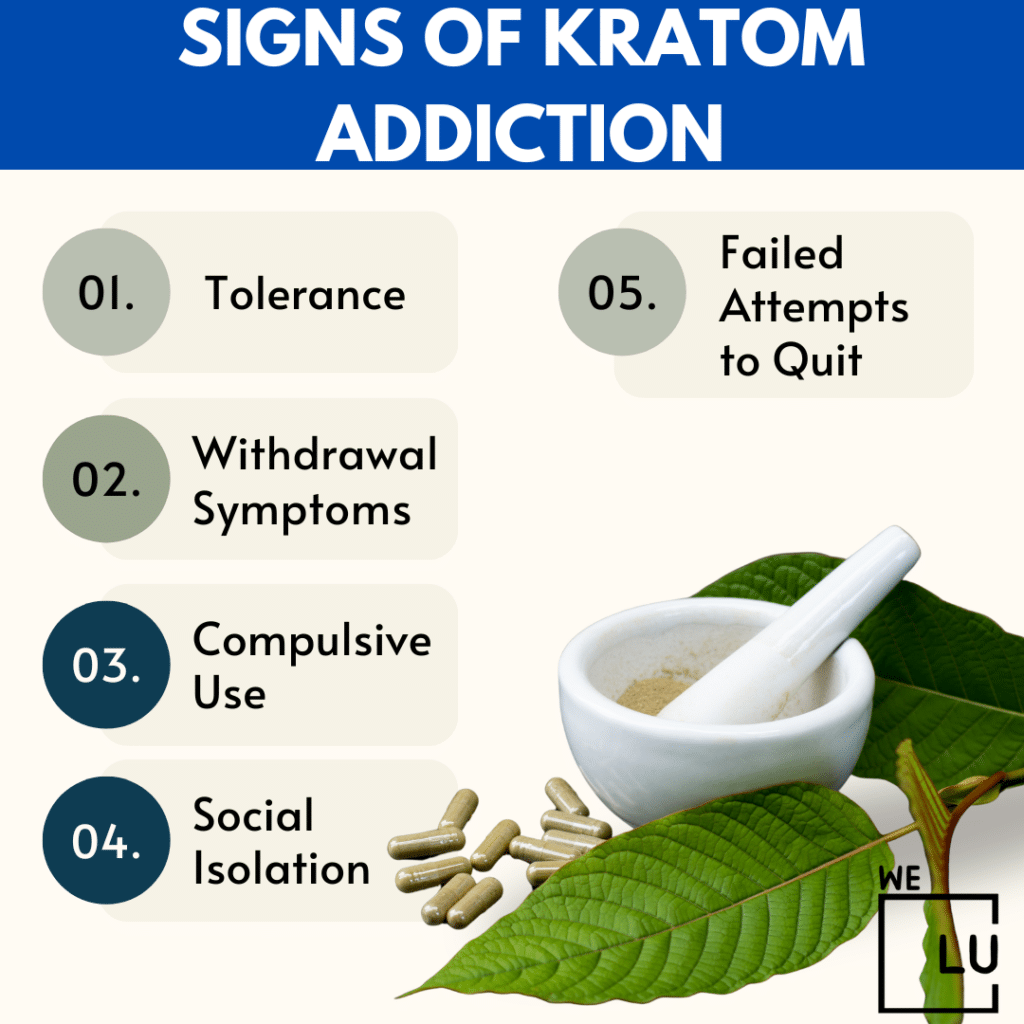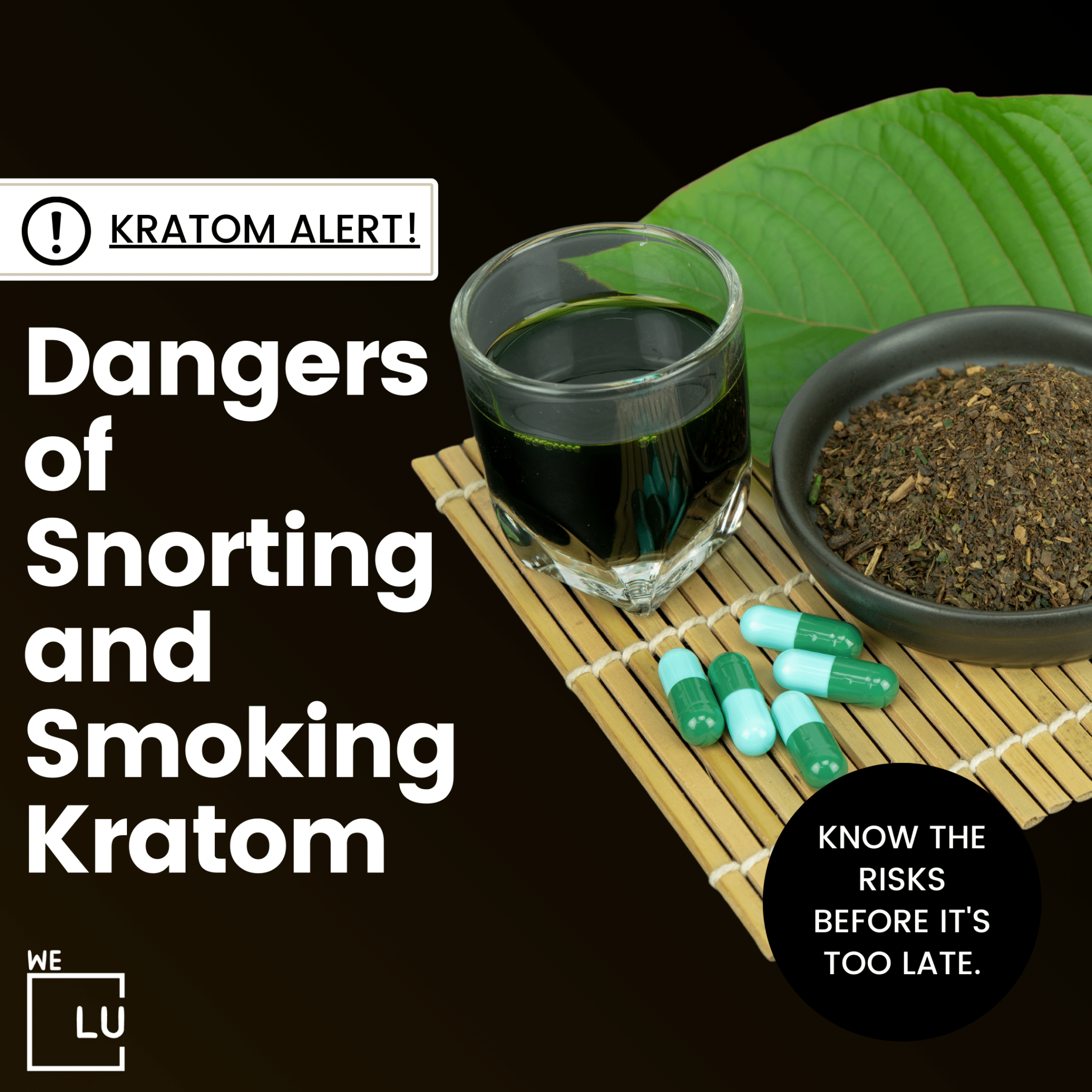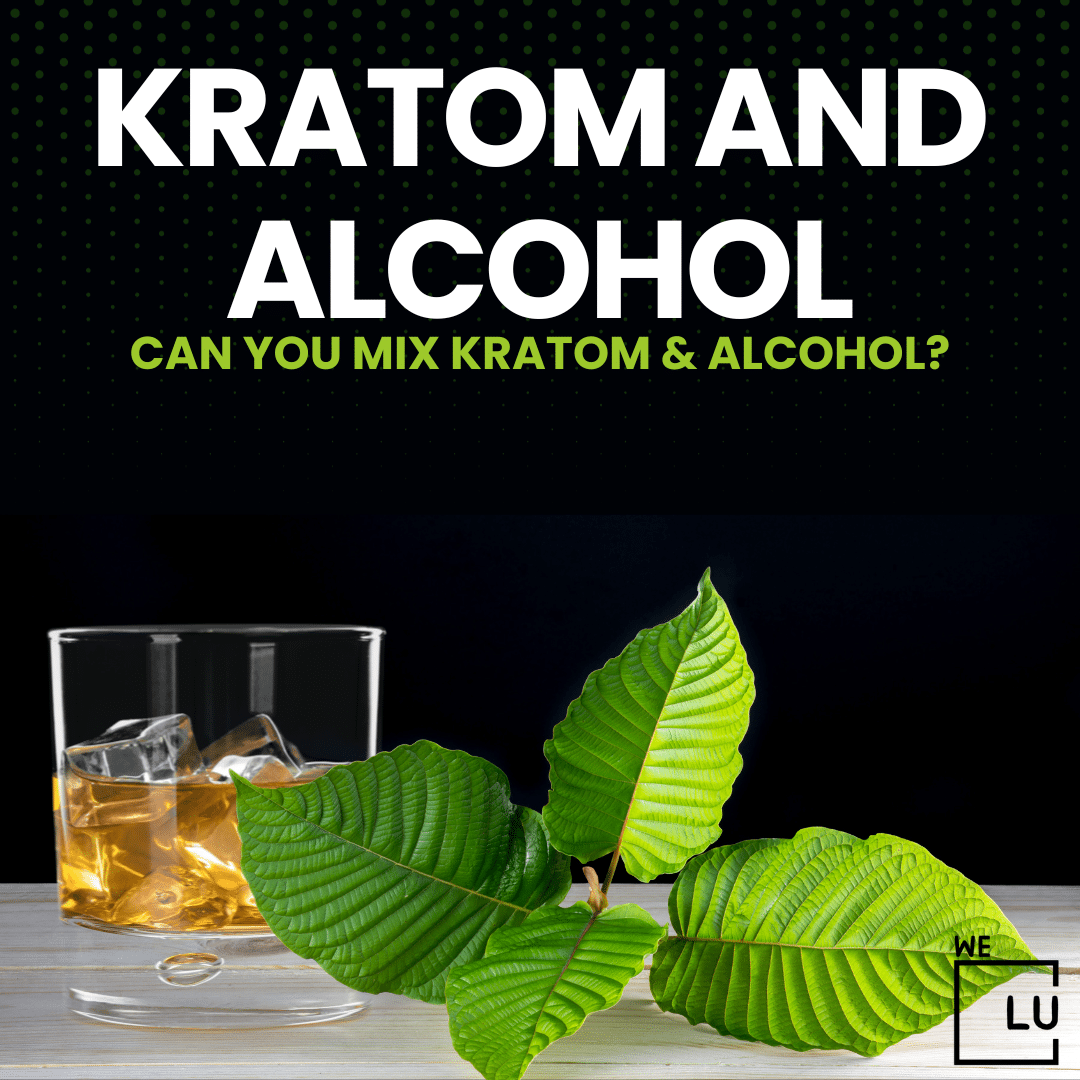Kratom, a substance derived from the leaves of the Mitragyna speciosa tree, has gained popularity as a natural remedy for various illnesses. However, the use of kratom comes with potential risks, including the development of addiction. Kratom contains compounds that interact with the brain’s receptors, leading to effects similar to opioids. As individuals engage in regular use, they may experience tolerance, dependence, and withdrawal symptoms. Understanding, recognizing, and addressing kratom addiction early can make a difference in those who are struggling.
If you or a loved one is grappling with the challenges of kratom dependence, seeking professional help is crucial for a comprehensive and supportive approach to recovery. Call We Level Up CA today to access assistance and guidance tailored to your unique needs on the path to overcoming kratom addiction.
What Is Kratom?
Kratom is a tropical tree (Mitragyna speciosa) native to Southeast Asia, with leaves that contain compounds that can have psychotropic (mind-altering) effects. It is not currently an illegal substance, and people suffering from Kratom Drug Addiction can easily order it on the internet. It is sometimes sold as a green powder in packets labeled “not for human consumption.” It is also sometimes sold as an extract or gum, states the National Institute on Drug Abuse in the piece ‘Kratom DrugFacts.’
Most people take kratom as a pill, capsule, or extract. Some people chew kratom leaves or brew the dried or powdered leaves as tea. Sometimes, the leaves are smoked or eaten in food.
Is Kratom Addictive?
Kratom (Mitragyna speciosa) has the potential for addiction. Kratom contains compounds that can interact with the brain’s opioid receptors, leading to effects similar to opioids. While some people use kratom for its perceived therapeutic effects, including pain relief and mood enhancement, regular use can lead to the development of tolerance, dependence, and addiction.
Withdrawal symptoms from kratom can include irritability, anxiety, insomnia, muscle aches, and mood changes. Additionally, long-term use of kratom has been associated with various health risks, including liver damage and other adverse effects.
How Long Does It Take To Get Addicted To Kratom?
The speed at which someone can become addicted to kratom can vary from person to person and depends on several factors, including individual differences, dosage, frequency of use, and duration of use. Some individuals may develop dependence and addiction relatively quickly, while others may use kratom without experiencing significant issues.
For some users, the development of tolerance and dependence can occur in a matter of weeks with regular use. Tolerance refers to the need for higher doses to achieve the same effects. At the same time, dependence involves the body adapting to the presence of the substance and experiencing withdrawal symptoms when use is reduced or stopped.
Not everyone who uses kratom will become addicted, and the risk factors for addiction can vary. However, due to the potential for dependence and withdrawal symptoms associated with kratom use, individuals should use caution and be aware of their usage patterns.
Signs Of Kratom Addiction
Signs of kratom addiction can vary among individuals, but there are some common signs and symptoms that may indicate a person is struggling with dependence or addiction to kratom. Keep in mind that experiencing one or more of these signs does not necessarily mean someone is addicted, but if you or someone you know is exhibiting several of these behaviors, it may be cause for concern.
Here are some potential signs of kratom addiction:
- Tolerance: Needing to use increasing amounts of kratom over time to achieve the desired effects.
- Withdrawal Symptoms: Experiencing physical and psychological symptoms when kratom use is reduced or stopped. These may include irritability, anxiety, muscle aches, insomnia, nausea, and sweating.
- Compulsive Use: Difficulty controlling or cutting down on kratom use, even if there are negative consequences.
- Neglecting Responsibilities: Prioritizing kratom use over responsibilities at work, school, or in personal relationships.
- Social Isolation: Withdrawing from social activities and relationships in favor of spending more time using kratom.
- Financial Issues: Spending a significant amount of money on kratom potentially leads to financial difficulties.
- Preoccupation with Kratom: Spending a significant amount of time thinking about, obtaining, and using kratom.
- Physical Health Issues: Experiencing adverse physical health effects, such as weight loss, gastrointestinal problems, or sleep disturbances.
- Psychological Changes: Mood swings, irritability, or personality changes that may be linked to kratom use.
- Failed Attempts to Quit: Unsuccessful attempts to cut down or quit using kratom.

Skip To:
Learn More:

Get Your Life Back
Find Hope & Recovery. Get Safe Comfortable Detox, Addiction Rehab & Dual Diagnosis High-Quality Care.
Hotline (855) 695-1160Effects Of Kratom Addiction
Kratom addiction can have a range of effects on both physical and mental health. The severity of these effects can vary among individuals, and some may experience more pronounced symptoms than others. Here are the potential effects of kratom addiction:

- Physical Health Issues: Chronic use of kratom can lead to various physical health problems, including weight loss, gastrointestinal issues (such as constipation), and increased risk of dehydration.
- Withdrawal Symptoms: When a person becomes addicted to kratom, they may experience withdrawal symptoms when attempting to reduce or stop use. Withdrawal symptoms can include irritability, anxiety, muscle aches, insomnia, nausea, and sweating.
- Psychological Effects: Kratom addiction can impact mental health, leading to mood swings, irritability, anxiety, and, in some cases, symptoms of depression.
- Social and Relationship Problems: Individuals addicted to kratom may prioritize its use over relationships, leading to social isolation and strain on personal connections.
- Financial Consequences: The cost of obtaining kratom can add up, leading to financial difficulties for individuals who are addicted.
- Occupational or Academic Impairment: Kratom addiction can result in a decline in work or academic performance due to impaired concentration, focus, and overall functioning.
- Risk of Overdose: While rare, there have been reports of kratom-associated overdoses, especially when it is used in combination with other substances. Overdose symptoms may include respiratory depression, seizures, and coma.
- Legal Issues: Depending on the legal status of kratom in a given region, individuals addicted to kratom may face legal consequences for its possession or use.
- Deterioration of Overall Well-being: Chronic kratom use can contribute to a decline in overall well-being, affecting physical health, mental health, and quality of life.
Get Help. Get Better. Get Your Life Back.
Searching for an Accredited Drug and Alcohol Rehab Centers in Near You?
Even if you have failed previously and relapsed, or are in the middle of a difficult crisis, we stand ready to support you. Our trusted behavioral health specialists will not give up on you. When you feel ready or just want someone to speak to about therapy alternatives to change your life call us. Even if we cannot assist you, we will lead you to wherever you can get support. There is no obligation. Call our hotline today.
FREE Addiction Hotline – Call 24/7Risks Of Kratom Addiction
Kratom addiction can pose various dangers to an individual’s health and well-being. While kratom is touted by some as a natural remedy, it contains compounds that can interact with the brain’s receptors, leading to effects similar to opioids. Here are some dangers associated with kratom addiction:
- Dependence and Tolerance: Regular use of kratom can lead to the development of tolerance, where higher doses are needed to achieve the same effects, and dependence, where the body adapts to the presence of the substance.
- Withdrawal Symptoms: When individuals addicted to kratom try to reduce or stop their use, they may experience withdrawal symptoms. These symptoms can include irritability, anxiety, muscle aches, insomnia, and mood changes.
- Psychological Impact: Kratom addiction can affect mental health, leading to mood swings, irritability, and, in some cases, symptoms of anxiety or depression.
- Impaired Cognitive Function: Prolonged kratom use may impact cognitive function, including concentration and memory.
- Gastrointestinal Issues: Constipation is a common side effect of kratom use, and chronic use may lead to more severe gastrointestinal problems.
- Weight Loss: Reduced appetite associated with kratom use can result in weight loss.
- Dehydration: Kratom’s diuretic effects can contribute to dehydration if individuals do not consume enough fluids.
- Liver Damage: There have been reported cases of liver damage associated with kratom use, although the extent of this risk is still under investigation.
- Respiratory Issues: High doses of kratom may lead to respiratory depression, a potentially dangerous condition where breathing becomes slow and shallow.
- Increased Risk of Overdose: While rare, there have been reports of kratom-associated overdoses, especially when combined with other substances.
- Social and Occupational Consequences: Kratom addiction can lead to social isolation, strained relationships, and difficulties at work or in school due to impaired functioning.
- Legal Issues: Depending on the legal status of kratom in a given region, individuals addicted to kratom may face legal consequences for its possession or use.

First-class Facilities & Amenities
World-class High-Quality Addiction & Mental Health Rehabilitation Treatment
Rehab Centers TourRenowned California Addiction Center. Serene Private Facilities. Inpatient rehab programs vary.
Addiction Helpline (855) 695-1160Proven recovery success experience, backed by a Team w/ History of:
15+
Years of Unified Experience
100s
5-Star Reviews Across Our Centers
10K
Recovery Success Stories Across Our Network
- Low Patient to Therapist Ratio
- Onsite Medical Detox Center
- Comprehensive Dual-Diagnosis Treatment
- Complimentary Family & Alumni Programs
- Coaching, Recovery & Personal Development Events
How Is Kratom Addiction Treated?
The treatment of kratom addiction typically involves a combination of behavioral therapies, counseling, and support to help individuals overcome dependence and achieve recovery. Here are some common approaches to treating kratom addiction:

- Medical Assessment: A healthcare professional will assess the extent of the addiction, assess overall health, and identify any co-occurring medical or mental health conditions.
- Detoxification (Detox): In cases of severe dependence, medical detoxification may be necessary. This involves gradually tapering the individual off kratom under medical supervision to manage withdrawal symptoms and ensure safety.
- Behavioral Therapies: Various therapeutic approaches can be effective in treating kratom addiction. Cognitive-behavioral therapy (CBT), contingency management, and motivational enhancement therapy are evidence-based therapies that address underlying issues and help individuals develop coping strategies.
- Support Groups: Participation in support groups, such as Narcotics Anonymous (NA) or SMART Recovery, can provide individuals with a sense of community and understanding. Peer support is valuable during the recovery process.
- Counseling: Individual counseling sessions with a trained addiction counselor or therapist can help individuals explore the factors contributing to their addiction, set goals for recovery, and develop strategies for maintaining abstinence.
- Education and Psychoeducation: Providing education about the risks of kratom use and addiction can be an essential component of treatment. Psychoeducation helps individuals understand the consequences of their actions and promotes informed decision-making.
- Holistic Approaches: Some individuals may benefit from holistic approaches, such as mindfulness, yoga, and other complementary therapies. These can contribute to overall well-being and stress management.
- Medication-Assisted Treatment (MAT): While there are no FDA-approved medications specifically for kratom addiction, certain drugs used in opioid addiction treatment (such as buprenorphine or naltrexone) may be considered on a case-by-case basis.
- Aftercare Planning: Planning for ongoing support after the formal treatment program is crucial. Aftercare may involve continued counseling, participation in support groups, and strategies for maintaining a healthy, drug-free lifestyle.
Treatment plans should be individualized, considering each person’s unique needs and circumstances. Seeking professional help is essential for a comprehensive and practical approach to kratom addiction treatment. If you or someone you know is struggling with kratom addiction, consulting with a healthcare provider or addiction specialist is strongly recommended.
World-class, Accredited, 5-Star Reviewed, Effective Addiction & Mental Health Programs. Complete Behavioral Health Inpatient Rehab, Detox plus Co-occuring Disorders Therapy.
CALL (855) 695-1160End the Addiction Pain. End the Emotional Rollercoaster. Get Your Life Back. Start Drug, Alcohol & Dual Diagnosis Mental Health Treatment Now. Get Free No-obligation Guidance by Substance Abuse Specialists Who Understand Addiction & Mental Health Recovery & Know How to Help.
Therapist Advice About Healthy Relationships While In Addiction Recovery & Sobriety
Experience Transformative Recovery at the We Level Up California Treatment Center.
See our authentic success stories. Get inspired. Get the help you deserve.



Start a New Life
Begin with a free call to an addiction & behavioral health treatment advisor. Learn more about our dual-diagnosis programs. The We Level Up treatment center network delivers recovery programs that vary by each treatment facility. Call to learn more.
- Personalized Care
- Caring Accountable Staff
- World-class Amenities
- Licensed & Accredited
- Renowned w/ 100s 5-Star Reviews
We’ll Call You
Search We Level Up CA Kratom Addiction Drug & Alcohol Rehab / Detox & Mental Health Topics & Resources
Sources
- Henningfield JE, Chawarski MC, Garcia-Romeu A, Grundmann O, Harun N, Hassan Z, McCurdy CR, McMahon LR, Sharma A, Shoaib M, Singh D, Smith KE, Swogger MT, Vicknasingam B, Walsh Z, Wang DW, Huestis MA. Kratom withdrawal: Discussions and conclusions of a scientific expert forum. Drug Alcohol Depend Rep. 2023 Mar 15;7:100142. doi: 10.1016/j.dadr.2023.100142. PMID: 37397437; PMCID: PMC10311168. https://www.ncbi.nlm.nih.gov/pmc/articles/PMC10311168/
- Striley CW, Hoeflich CC, Viegas AT, Berkowitz LA, Matthews EG, Akin LP, Iheanyi-Okeahialam C, Mansoor U, McCurdy CR. Health Effects Associated With Kratom (Mitragyna speciosa) and Polysubstance Use: A Narrative Review. Subst Abuse. 2022 May 20;16:11782218221095873. doi: 10.1177/11782218221095873. PMID: 35645563; PMCID: PMC9130800. https://www.ncbi.nlm.nih.gov/pmc/articles/PMC9130800/
- NIDA. “Kratom.” National Institute on Drug Abuse, 25 Mar. 2022, https://nida.nih.gov/research-topics/kratom
- DEA – Kratom Drug Fact Sheet – https://www.dea.gov/sites/default/files/2020-06/Kratom-2020_0.pdf
- FDA – Kratom – https://www.fda.gov/news-events/public-health-focus/fda-and-kratom
- Jentsch MJ, Pippin MM. Kratom. [Updated 2023 Aug 28]. In: StatPearls [Internet]. Treasure Island (FL): StatPearls Publishing; 2023 Jan-. Available from: https://www.ncbi.nlm.nih.gov/books/NBK585120/
- Eastlack SC, Cornett EM, Kaye AD. Kratom-Pharmacology, Clinical Implications, and Outlook: A Comprehensive Review. Pain Ther. 2020 Jun;9(1):55-69. doi: 10.1007/s40122-020-00151-x. Epub 2020 Jan 28. PMID: 31994019; PMCID: PMC7203303. https://pubmed.ncbi.nlm.nih.gov/31994019/
- Singh D, Narayanan S, Vicknasingam B, Corazza O, Santacroce R, Roman-Urrestarazu A. Changing trends in the use of kratom (Mitragyna speciosa) in Southeast Asia. Hum Psychopharmacol. 2017 May;32(3). doi: 10.1002/hup.2582. Epub 2017 May 24. PMID: 28544011. https://pubmed.ncbi.nlm.nih.gov/28544011/
- Grundmann O, Veltri CA, Morcos D, Knightes D 3rd, Smith KE, Singh D, Corazza O, Cinosi E, Martinotti G, Walsh Z, Swogger MT. Exploring the self-reported motivations of kratom (Mitragyna speciosa Korth.) use: a cross-sectional investigation. Am J Drug Alcohol Abuse. 2022 Jul 4;48(4):433-444. doi: 10.1080/00952990.2022.2041026. Epub 2022 Apr 7. PMID: 35389321.https://pubmed.ncbi.nlm.nih.gov/35389321/
- Papadi G, Bakhiya N, Ildico Hirsch-Ernst K. Assessment of the possible health risks associated with the consumption of botanical preparations of Mitragyna speciosa (kratom). EFSA J. 2022 May 25;20(Suppl 1):e200415. doi: 10.2903/j.efsa.2022.e200415. PMID: 35634550; PMCID: PMC9131591. https://pubmed.ncbi.nlm.nih.gov/35634550/
- Singh D, Müller CP, Vicknasingam BK, Mansor SM. Social Functioning of Kratom (Mitragyna speciosa) Users in Malaysia. J Psychoactive Drugs. 2015 Apr-Jun;47(2):125-31. doi: 10.1080/02791072.2015.1012610. PMID: 25950592. https://pubmed.ncbi.nlm.nih.gov/25950592/




